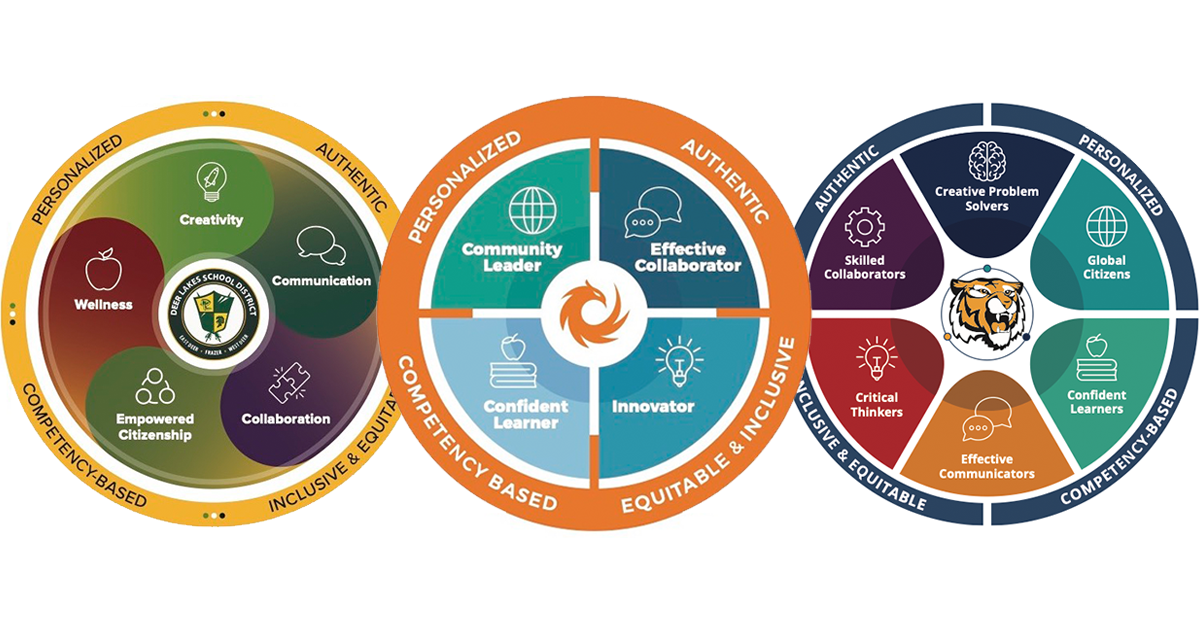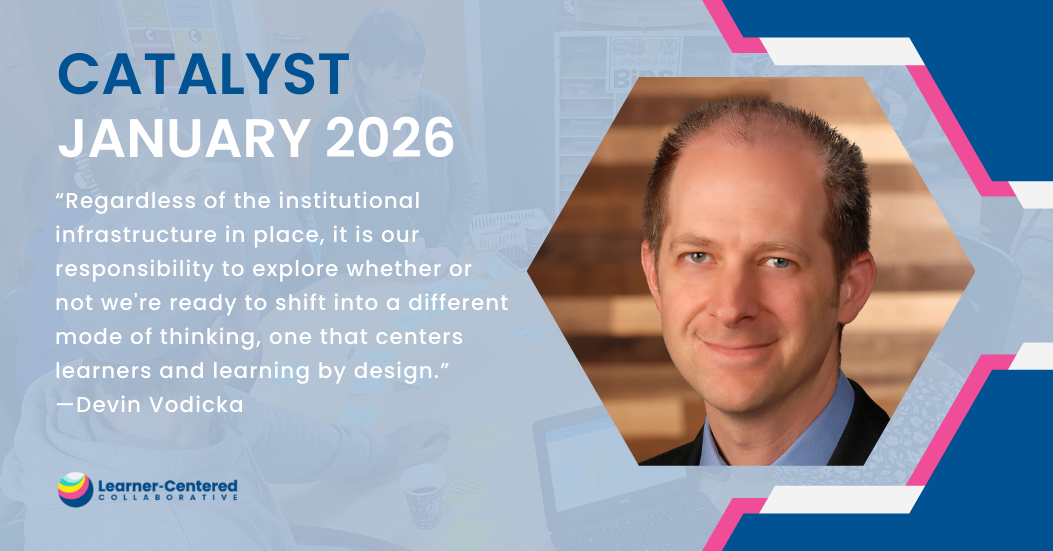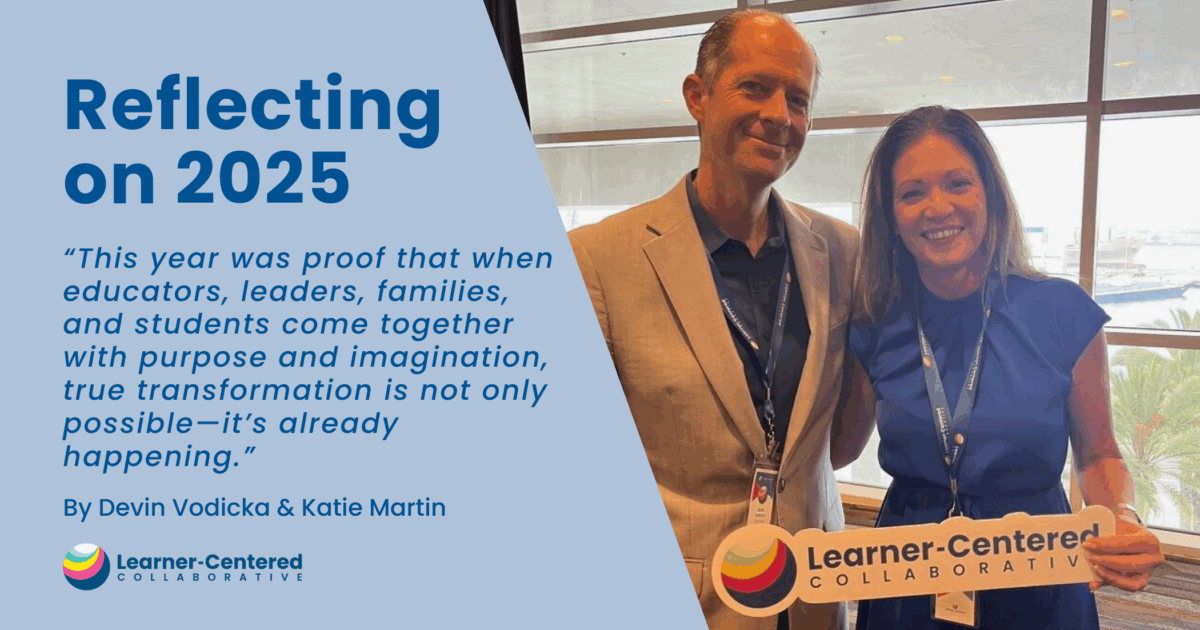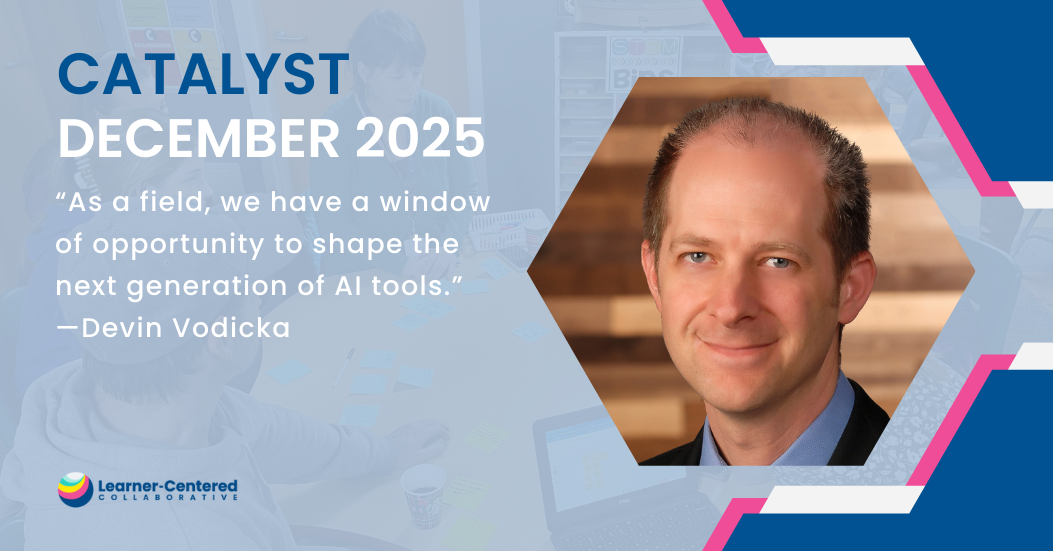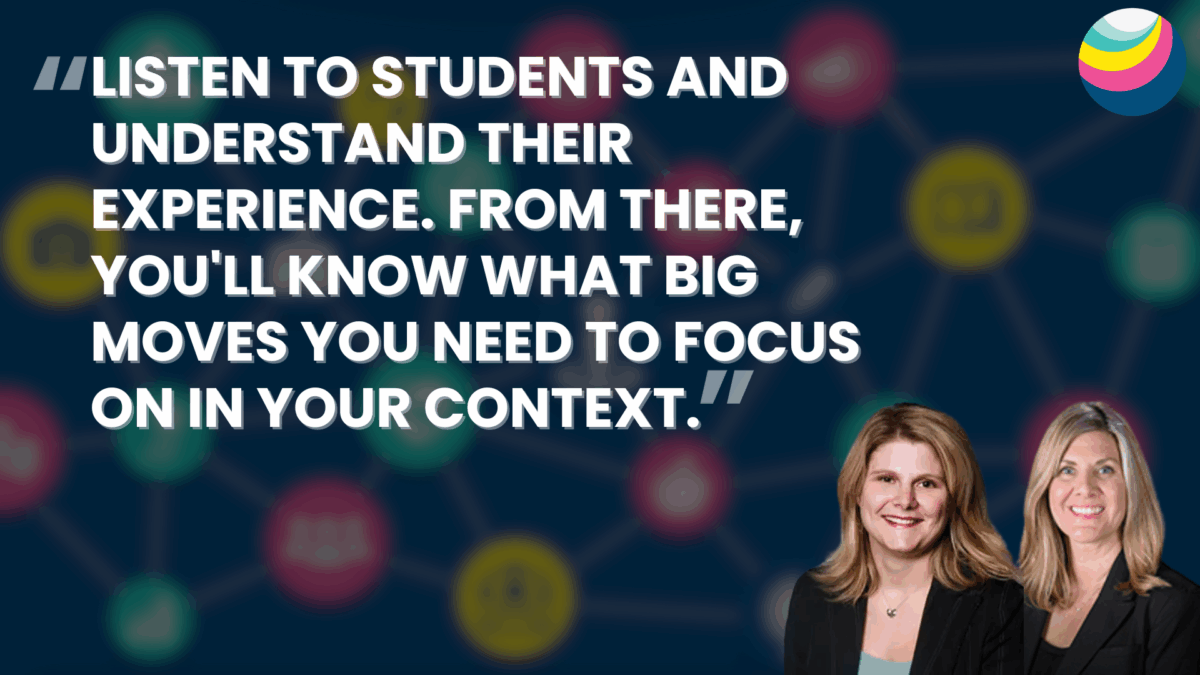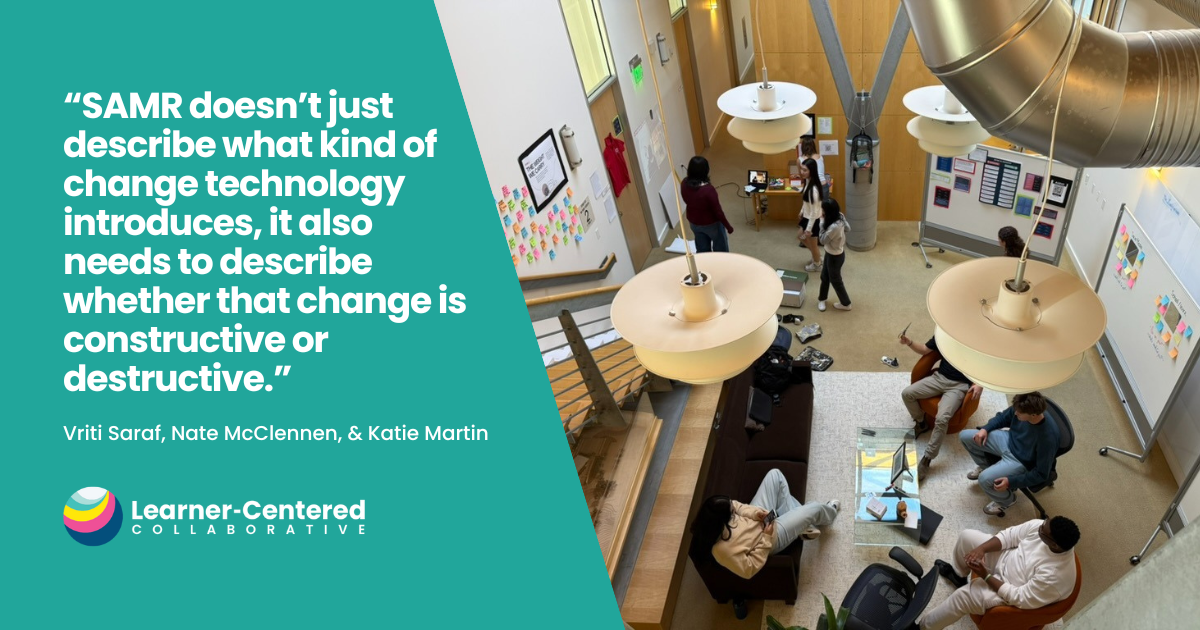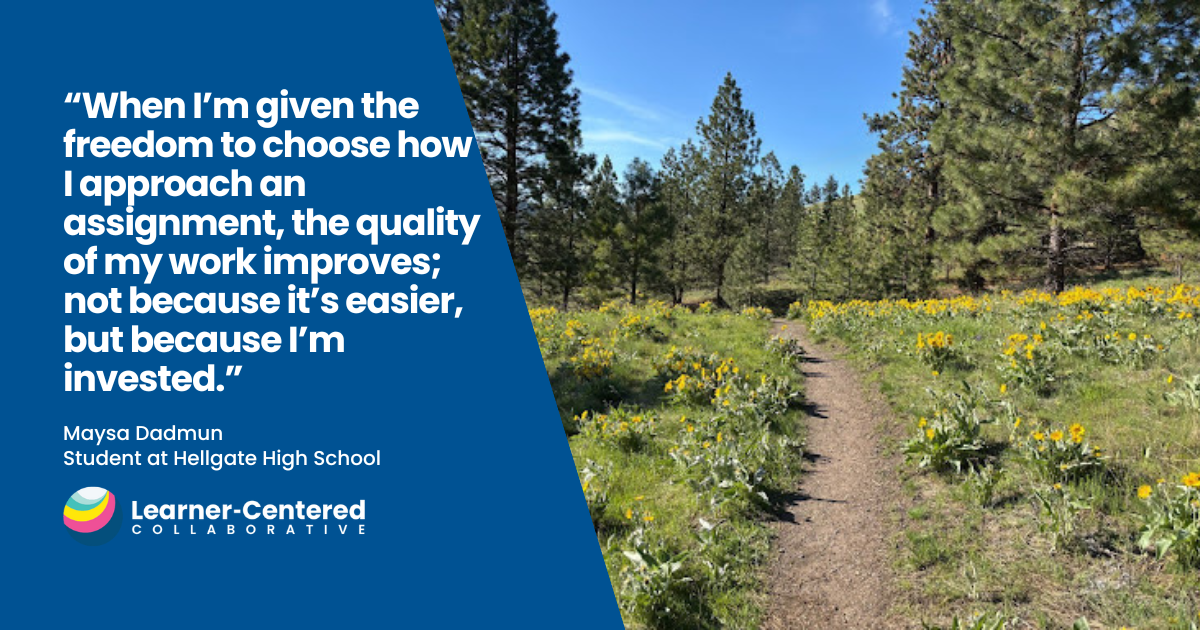How to Get Started Developing a Learner Profile
Learning communities across the country are asking an important question right now: what does success look like for our learners? Educational leaders are recognizing that clarity of desired outcomes is an important element in promoting coherence and connectedness. As a result, there is an increasing interest in the development of learner profiles that define an aspirational vision for learners in a visual, easily-communicated manner. In brief, the learner profile establishes the whole-child outcomes and it provides a catalyst to transform systems, processes, and structures necessary to support students in developing and demonstrating the outcomes.
How is a learner profile different from a graduate profile? They are largely the same except a learner-profile goes beyond articulating desired outcomes for graduates and includes an entire learning community from students to teachers to administrators and staff and beyond. Already have a learner-profile? Check out, So You Designed a Profile of a Graduate, Now What?
Unfortunately, most educators are accustomed to an “outside-in” model of accountability where policy-makers that are often far from the local context have been establishing priorities for us. School and district leaders often lack the experience and tools to shift the conversations, build a community conversation, and take ownership for what we really want for our learners. Well-intended educators frequently tell us that they don’t know how to organize the process and therefore fail to take action.
The truth is that once the process begins, we find that it generates excitement and momentum for what is possible. The key, in the words of my mentor Myron Rogers, is that “the process you use determines the future you get.” If we want shared ownership for our definition of success, we also need to share ownership along the way. If we want to create learner-centered experiences, we must begin by centering the process with and for our learners.
This requires a change in mindset for educational leaders and a willingness to have confidence in the wisdom of our students, staff, and community.
Listen to Learners
Getting started is deceptively simple: listen to your learners. This can be achieved through many formats and structures and we have found it most effective to combine forums with student surveys. There are processes and protocols for the forums that we have also found to be helpful, including use of a modified “continue-stop-start” series of prompts that leverages a strengths-based approach. Documenting the input is an important consideration and organizing the qualitative feedback from the forums along with what is generally quantitative data from the surveys elevates student voice and becomes the foundation for the next steps in the process.
Brittany Griffin shares 4 Strategies for Listening to Students to Spark Change.
Form a Guiding Coalition
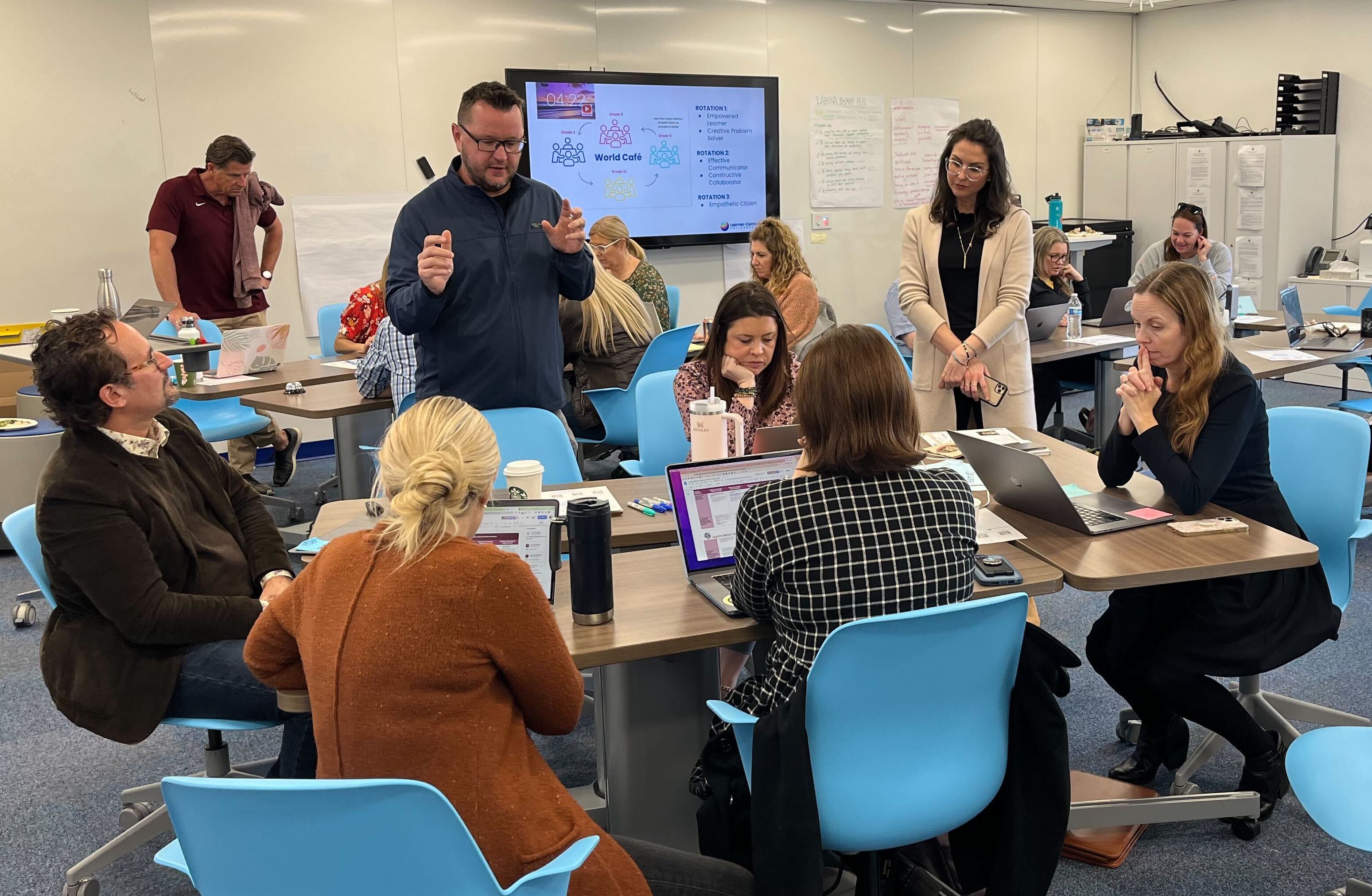
The next key step is to form a guiding coalition that includes representatives from multiple stakeholder groups, including students, families, teachers, classified staff, administration, and community leaders. The first task for the guiding coalition is to review and understand the input from students to better understand what is working and what needs to evolve. We find that this creates shared understanding and also generates an urgency for improvements that will benefit the learners. The shared context and collective will to improve is then the foundation for what comes next, which is to work together to develop the learner profile, establishing feedback and input systems to make adjustments along the way so that the final product truly represents the aspirations of the community.
What is a guiding coalition and who should be on it? Get these questions and more answered in Building a Guiding Coalition for School Innovation.
All of this begins with the simple step of listening to our learners. The time to get started is now.
